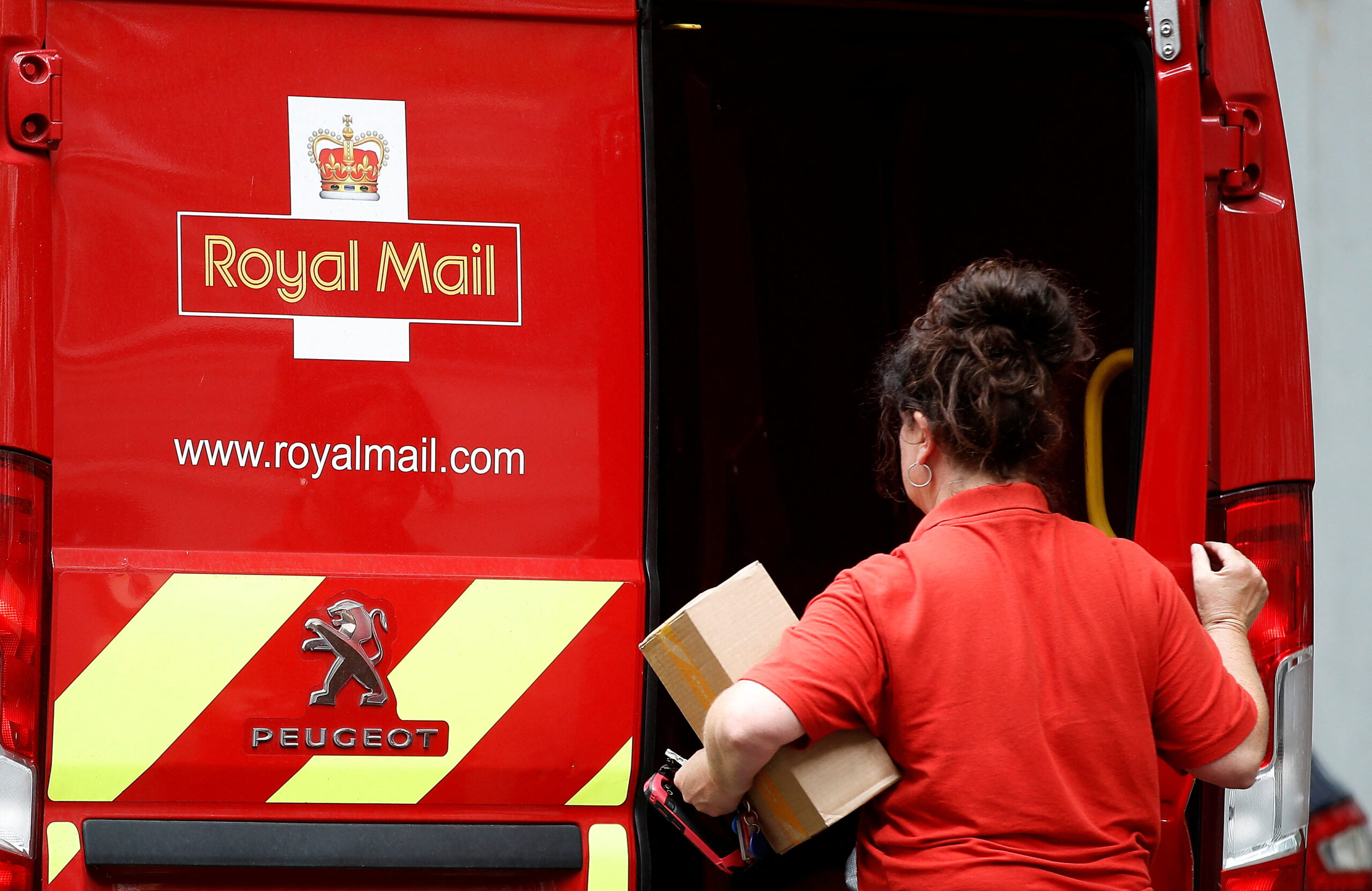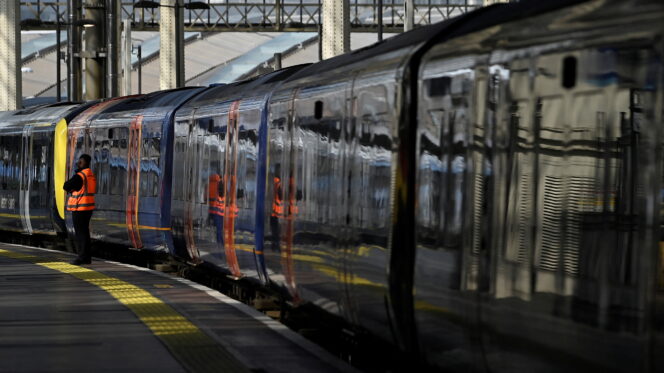Postal Workers Have No Choice But To Strike

This week sees the start of four days of strike action by Royal Mail workers. The first is on Friday, with further strikes on 31 August and 8 and 9 September. Things are unlikely to end there, however, with members of the Communication Workers Union (CWU) voting for a further four days of action in the coming weeks.
Eight strike days will hammer the Royal Mail’s bottom line – something company bosses seem to only just have grasped. But as food and fuel prices soar, the strikes will also cost those on the picket lines dearly. And yet more than 98% of CWU members, on a turnout of more than 72%, backed a second round of strikes – a staggering mandate for industrial action which in ordinary times would be unthinkable.
So why would postal workers, with a brutal winter ahead, renounce more than a week’s pay? The answer is simple: despite all the talk of union ‘barons’ and hot-headed radicals, eight days of strike action is entirely justified given the pay deal on offer from Royal Mail.
Royal Mail Group are claiming that they’ve offered workers a 5.5% pay rise.
This is a blatant lie. pic.twitter.com/ZCHUTbcyy3
— The CWU (@CWUnews) August 22, 2022
Royal Mail Group’s annual report reveals just how little management thinks of the company’s staff. Indeed, rather than evade the issue of low pay, the company boasts about how postal workers earn, on average, 25% more than the statutory minimum wage. Paying slightly more than the lowest amount needed to survive in Britain is a strange accomplishment to trumpet – especially given the company, in that same report, announced profits of more than £750m.
Throughout this document, company priorities are clear: profits and shareholder dividends come first, with fair pay lagging behind the desire to reduce emissions. In a period of low inflation, as has been the case since Royal Mail was privatised in 2013, this was politically manageable. When inflation may reach as high as 18%, however, it isn’t. Over the next few weeks, Royal Mail bosses will likely discover this the hard way.
Royal Mail claims to be offering workers a 5.5% pay rise. The truth is rather different. So far, the company has imposed a 2% increase (‘imposed’ because the CWU wasn’t consulted beforehand), with another 1.5% contingent on the union signing away certain terms and conditions. In addition, workers are being offered a performance-related bonus of £500 – something which, according to the union, is designed to be impossible to achieve.
In other words, the only pay rise on offer, without strings attached, is 2%. This is in a context where inflation will go beyond 10% for 2022 (Citibank recently projected a peak of 18% next January). In real terms, this means postal workers will see their purchasing power fall by at least 8% this year. Given the Bank of England anticipates inflation of 9.5% for next year, a similar pay deal in 2023 could mean they become 15% poorer over the next 18 months. The much-heralded pay gap over minimum wage jobs would all but disappear.
Even before inflation rose, postal workers were already resorting to food banks, carpooling and walking long distances to work. Stories like that of one Royal Mail employee who withdrew the last of her savings to buy nappies for her baby were becoming more and more common. Of course, in-work poverty has soared across the board in recent years. But unlike Sports Direct or Amazon, Royal Mail was in public ownership until 2013 – and the pay and working conditions of its staff reflected that. While staff desperately don’t want the company to resemble a gig economy employer, for management that’s the end game.
Executive pay at Royal Mail, meanwhile, is sky high. Take Rico Back, who was appointed CEO in 2018 before leaving two years later. On taking the role, Back was awarded a £5.8m ‘golden handshake’, before proceeding to work from his home overlooking Lake Geneva for the next two years. Back replaced Moya Greene, whose total compensation for 2012/13 was £3.7m, and whose departing package was roughly £2.6m (including a £1m ‘golden goodbye’). Despite this, Royal Mail has the temerity to claim that forthcoming strike action represents an “abdication of responsibility” by the CWU. One can only assume that for them, taking responsibility means awarding yourself a bonus, pay rise or signing-on fee the size of a lottery win.
Indeed, little has changed since the days of Back and Greene. Today, Royal Mail has not one but two CEOs. Simon Thompson, Group CEO, earned £753k last year as well as £140k in bonuses despite the company facing an investigation by Ofcom after failing to meet delivery targets. Mick Jeavons, the company’s chief financial officer, earned £1.3m, while Martin Seidenberg, CEO of GLS – a subsidiary of the group – earned £1.6m. These pay deals can only be justified on the ground that Royal Mail has seen several years of bumper profits. Why, then, isn’t this also reflected in the wages of those at the heart of the company’s everyday operations?
Along with the misleading 5.5% figure, you’ll likely also hear from Royal Mail bosses how the company is losing £1m a day. This figure, however – which the media repeats without assessing its veracity – is never accompanied by a source. Nor, unsurprisingly, is it mentioned that Royal Mail has recorded an aggregate profit of more than £1.7bn over the last three years or how £884m in dividends has been paid to shareholders. This is a profitable business which is rewarding shareholders and investing hundreds of millions to expand. Yet its employees are turning to food banks and are expected to accept getting poorer.
What’s more, the price of first class stamps increased 12% in April, with the company saying further rises are likely this year as a result of inflation. This offers just another example of a profitable company seeking to exploit inflationary pressures by increasing prices – to ‘keep up’ – while holding down wages because apparently there’s no money to spare. Such tactics, unfortunately, are all too common. In fact, a Unite the Union investigation found that profits were responsible for nearly 60% of all the inflation we saw in the first half of 2022.
. @RoyalMail have put up first class stamps by 11%, while offering workers a 2% rise. They’ll get another 1.5% if accept new conditions – which include delivering letters as late as 5pm!
What’s point of a 1st class stamp for a 5pm delivery?! Paying more for less. It’s looting.
— Aaron Bastani (@AaronBastani) August 23, 2022
After the shock sinks in, these strikes will likely accelerate plans to sell off GLS, Royal Mail Group’s highly profitable subsidiary, while domestic business is allowed to go to ruin. It may not be in the interest of workers or the public, but in corporate Britain, none of that matters. After all, the privatisation of Royal Mail meant the taxpayer missed out on £1bn in 2013.
If those plans go ahead, it would mean the loss of an iconic British company with 400 years of history. Under public ownership, Royal Mail could be a world-class logistics firm with high labour standards and a diminishing carbon footprint. As it stands, the names of those who workers find themselves up against – Thompson, Jeavons and Seidenberg – should become shorthand for rampant inequality, in-work poverty and an out-of-control business elite.
Aaron Bastani is a Novara Media contributing editor and co-founder.


